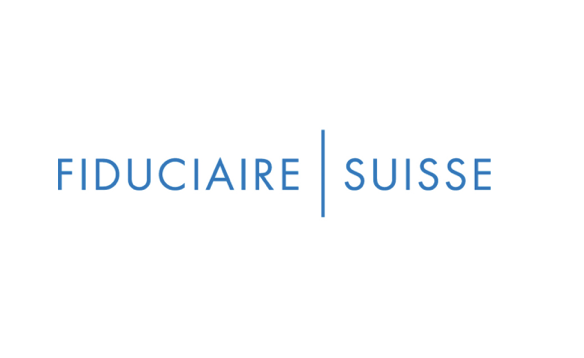Holding in Switzerland: Legal Form, Administration and Detailed Taxation
A holding in Switzerland is attracting more and more entrepreneurs and international investors thanks to its attractive tax environment, strong political stability, and a wide network of double-taxation treaties. Whether to group shareholdings, centralize dividend flows, or plan a wealth transfer, a Swiss holding offers a flexible and tax-efficient structure.
Legal Form: SA/AG or Sàrl/GmbH for a Swiss Holding
A holding in Switzerland can be incorporated under two main legal forms:
Sàrl (GmbH)
• Minimum capital: CHF 20,000, fully paid in.
• Advantages: lower incorporation costs, simple governance, ideal for family or medium-sized holdings.
• Transparency: the partners’ names appear in the Commercial Register, which is appropriate when confidentiality is not a priority.
SA (AG)
• Minimum capital: CHF 100,000, with at least CHF 50,000 (or 20 % if higher) paid in.
• Advantages: greater flexibility to welcome external investors or raise capital. Shareholders are not publicly listed, which allows more confidentiality.
The choice between a Sàrl or a SA depends on the type of investors, the level of confidentiality sought, and the development ambitions of the holding in Switzerland.
Administration and Legal Obligations of a Swiss Holding
Mandatory Local Representation
The Swiss Code of Obligations requires that a holding in Switzerland be represented by at least one person domiciled in Switzerland with individual signing authority, or by two persons with collective signature. This requirement applies to both Sàrl and SA.
Governance and Substance
To fully benefit from tax advantages and double-taxation treaties, a holding in Switzerland must demonstrate real economic substance:
• Effective registered office in Switzerland
• Swiss-compliant accounting
• An active board of directors or manager based in Switzerland
This substance is crucial for opening a Swiss bank account and for the international recognition of the holding in Switzerland.
Federal and Cantonal Taxation: Participation Deduction
Since the Swiss corporate tax reform (RFFA), there is no longer a special cantonal holding status. However, a holding in Switzerland benefits from a powerful mechanism provided by the Federal Direct Tax Act (LIFD): the participation deduction.
Dividends Received
When the holding in Switzerland owns at least 10 % of a subsidiary’s share capital (or a market value of at least CHF 1 million), dividends received are virtually exempt from tax. No minimum holding period is required.
Capital Gains
Gains from the sale of participations of at least 10 % are exempt from income tax provided the participation has been held for at least one year.
In practice, these rules enable a holding in Switzerland to neutralize a large part of the federal and cantonal profit tax.
Dividends and Swiss Withholding Tax (WHT)
Swiss Subsidiary → Swiss Holding
Dividends paid by a Swiss company to a holding in Switzerland are subject to a 35 % withholding tax, which is fully refundable if the income is properly declared.
Swiss Holding → EU Parent Company
For outbound dividends to the European Union, a 0 % rate may apply through the notification procedure if the holding owns at least 25 % of the subsidiary for a minimum of two years.
EU Subsidiary → Swiss Holding
The EU Parent–Subsidiary Directive does not directly apply to a holding in Switzerland, as Switzerland is not an EU member. Dividends are therefore subject to the domestic law of the subsidiary’s state and to the relevant double-taxation treaty, which often reduces withholding tax to between 0 % and 5 %.
Non-EU Subsidiary → Swiss Holding
When the subsidiary is located in a third country (e.g. the United States or Asia), the withholding tax depends entirely on the double-taxation treaty signed with Switzerland. Many treaties provide for reduced rates, typically between 0 % and 15 %.
Other Tax Advantages of a Swiss Holding
• Loss carry-forward: possible for seven years, useful to plan dividend distributions and asset sales.
• No capital tax on certain reserves depending on the canton.
• Limited international double taxation thanks to Switzerland’s network of more than 100 bilateral tax treaties.
Practical Steps to Create a Holding in Switzerland
Essential Steps
-
Determine the legal form (Sàrl/GmbH or SA/AG).
-
Draft the articles of association and appoint the governing body.
-
Open a bank account and pay in the capital.
-
Register the company in the Swiss Commercial Register.
-
Set up accounting, social security (AVS), VAT if applicable, and intra-group agreements.
Economic Substance
To secure tax benefits, the Swiss holding must prove effective management from Switzerland (board meetings, strategic decisions, contract signing).
Conclusion: A Central Vehicle for International Structuring
A holding in Switzerland combines legal stability, tax advantages, and operational flexibility. It suits both international groups wishing to centralize dividends and entrepreneurs planning wealth transfers.
Whether organized as a SA or Sàrl, a holding in Switzerland remains a key structuring tool, enabling very low taxation of participation income and optimal distribution of dividends.
RISTER – Fiduciary in Geneva: Expert in Creation and Administration of Holdings in Switzerland
Based in the heart of Geneva, RISTER – Fiduciary in Geneva has for many years assisted Swiss and international entrepreneurs in the creation and administration of holdings in Switzerland. Its team of lawyers, tax experts, and accountants is fully familiar with Swiss legal requirements (Code of Obligations, LIFD, tax treaties) and cantonal practices, ensuring a fast and compliant setup. RISTER advises on the choice of legal form (SA or Sàrl), drafting of articles, capital structuring, and bank account opening. The goal: to allow every client to fully benefit from the tax advantages and legal security offered by a holding in Switzerland.
Comprehensive Advisory and Representation Services for Swiss Holdings
RISTER – Fiduciary in Geneva provides tailor-made support throughout the life of a holding in Switzerland. Services include full corporate administration (general meetings, minutes, share or quota registers), legal representation by a Swiss-resident director or manager in compliance with the Code of Obligations, and continuous follow-up with tax authorities and the commercial register.
This representation ensures strong governance and ongoing compliance for the holding in Switzerland, while facilitating banking relationships and international recognition.
Professional Domiciliation and Registered Office for a Holding in Switzerland
RISTER offers prestigious Geneva addresses for the domiciliation of Swiss holdings, ensuring a recognized registered office compliant with Swiss legal requirements. The service includes mail reception and handling, access to meeting rooms, and day-to-day administrative management. Choosing RISTER provides a holding in Switzerland with a solid infrastructure that strengthens its economic substance—essential for benefiting from double-taxation treaties and proving effective management from Switzerland.
Taxation and Wealth Planning for Swiss Holdings
With deep expertise in Swiss and international taxation, RISTER advises clients on optimizing the tax position of their holding in Switzerland. The team prepares and files profit and capital tax returns, applies the participation deduction (near-total exemption on dividends and capital gains), and coordinates with cantonal and federal tax authorities. RISTER also develops strategies for wealth planning and dividend distribution, considering relevant double-taxation treaties to minimize the overall tax burden of family or multinational groups.
FAQ – Holding in Switzerland: Legal Form, Administration and Taxation
-
What is a holding in Switzerland and what is its purpose?
A holding in Switzerland is a company (SA or Sàrl) whose main purpose is to hold and manage participations in other companies. It allows dividend centralization, wealth transfer planning, and group tax optimization through the participation deduction.
-
Which legal form to choose for a holding in Switzerland: SA or Sàrl?
A Sàrl requires a minimum capital of CHF 20,000, fully paid in, and is suited to family or mid-size holdings.
An SA requires a minimum capital of CHF 100,000 (at least CHF 50,000 paid in) and provides more confidentiality and easier access to external investors.
The choice depends on the desired confidentiality level, investor profile, and growth ambitions.
-
What administrative obligations apply to a Swiss holding ?
The Swiss Code of Obligations requires at least one Swiss-resident director with individual signing authority or two with joint authority.
The company must also demonstrate real economic substance: an effective Swiss office, compliant accounting, and strategic decisions made in Switzerland.
-
How are dividends taxed for a Swiss holding?
Dividends received are almost fully exempt from federal and cantonal tax if the holding owns at least 10 % of the subsidiary’s share capital or participations with a market value of at least CHF 1 million. No minimum holding period applies.
-
What about capital gains realized by a Swiss holding?
Capital gains from the sale of participations of at least 10 % are exempt from profit tax if held for at least one year, making the holding in Switzerland attractive for managing strategic investments.
-
How is withholding tax applied to dividends?
• Swiss subsidiary → Swiss holding: 35 % withholding tax, fully refundable.
• Swiss holding → EU parent: 0 % possible with the notification procedure (25 % participation for 2 years).
• EU subsidiary → Swiss holding: EU Parent–Subsidiary Directive not applicable; double-taxation treaties typically reduce WHT to 0–5 %.
• Non-EU subsidiary → Swiss holding: WHT depends on the double-taxation treaty, usually 0–15 %.
-
What other tax advantages does a Swiss holding offer?
It can carry forward losses for seven years, benefit from low or no capital tax depending on the canton, and use more than 100 double-taxation treaties to minimize global taxation.
-
What are the practical steps to create a Swiss holding?
Determine the legal form, draft the articles, open a bank account and pay in the capital, register in the Commercial Register, and set up accounting, social security and intra-group agreements.
The holding must also prove effective management from Switzerland (board meetings, decision-making, contract signing).
-
Why is economic substance so important?
Economic substance proves that the holding in Switzerland is truly managed from Switzerland and not another country. This is essential to benefit from double-taxation treaties, secure tax advantages, and facilitate banking relationships.
-
How does RISTER – Fiduciaire in Geneva support a holding in Switzerland?
RISTER offers end-to-end services:
• Formation (articles, capital, registration)
• Administration and legal representation with a Swiss-resident director
• Professional domiciliation at a prestigious Geneva address, including mail reception and meeting rooms
• Tax and wealth planning: participation deduction optimization, liaison with tax authorities, and advice on dividend distribution
Thanks to its experience and tax expertise, RISTER – Fiduciary in Geneva ensures fast incorporation and compliant, optimized management of every holding in Switzerland.











